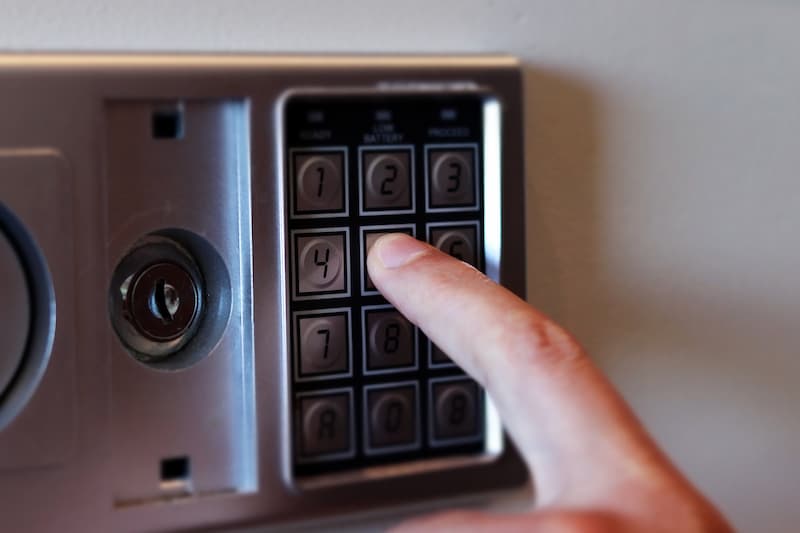Just imagine, after decades of hard work, you’re finally approaching your golden years, ready to embrace the fruits of your labor and enjoy a well-deserved retirement.
You’ve meticulously planned your financial future, only to discover that your 401k – your security blanket for retirement – has been compromised by fraudsters or swindlers. A chilling thought, isn’t it?
Unfortunately, 401k fraud and scams are becoming increasingly prevalent, with seniors often bearing the brunt of these malicious schemes.
But fear not, dear reader, as we have got your back! In this eye-opening article, we’ll unravel the murky world of 401k fraud and scams, identify the vulnerable demographic, reveal the common traps laid by unscrupulous individuals, and – most importantly – equip you with invaluable tips to safeguard your hard-earned nest egg.
So, buckle up and read on – your retirement savings depend on it!
Introduction to 401k Fraud and Scams
The aging population and the increasing number of individuals approaching retirement have heightened the importance of safeguarding one’s hard-earned savings from fraudulent activities and scams.
One area that demands particular attention is 401k plans, as these retirement vehicles can be prime targets for unscrupulous individuals looking to exploit vulnerable seniors.
In this article, we delve into the intricacies of a 401k plan, identify the demographic most susceptible to 401k fraud, enumerate common types of fraudulent activity aimed at 401ks, and offer guidance on how to protect your retirement nest egg.
What is a 401k?
A 401k plan is an employer-sponsored retirement savings vehicle that allows employees to allocate a portion of their pre-tax income to the plan. Employers may also opt to match employee contributions, further bolstering the growth potential of the account.
401k plans invest in a diverse range of assets, including stocks, bonds, and other securities, with the ultimate objective of growing the account over time.
Upon reaching retirement age, the employee can withdraw funds from the plan, which then serve as a supplementary income stream during their golden years.
Who is at Risk of 401k Fraud?
Seniors are particularly susceptible to 401k fraud, given their relatively greater wealth accumulation and potential lack of familiarity with modern financial tools and practices.
Moreover, a staggering 90% of reported elder financial abuse cases are perpetrated by family members, further complicating the detection and prevention of fraud.
Fraudsters often target seniors with tantalizing offers of high returns or assurances of guaranteed income in retirement, exploiting fear or emotional vulnerability to manipulate them into making ill-advised financial decisions.
Common Types of Fraudulent Activity Targeting 401ks
Fraudulent activities targeting 401k plans come in various guises, including pyramid schemes that promise exponential returns through the recruitment of new investors.
However, these schemes are unsustainable and eventually collapse when the influx of new investors runs dry.
Ponzi schemes represent another deceptive ploy, where returns are paid out using the contributions of new investors rather than genuine investment returns. These schemes can be particularly insidious, as they often masquerade as legitimate investment opportunities.
To fortify your 401k against fraud and scams, it’s crucial to engage in independent research before investing.
Scrutinize the company’s financial statements and disclosures via the SEC’s EDGAR database, and investigate the salesperson’s licensing and disciplinary history using BrokerCheck.
Exercise skepticism when confronted with investments touted as “once-in-a-lifetime opportunities” or those based on “insider” information.
Exercise caution when dealing with unsolicited offers, particularly if they come in the form of a fax or email and lack comprehensive financial information.
Additionally, maintain a watchful eye on your investments, and don’t hesitate to seek clarification on any trading activity that seems perplexing.
If you suspect fraudulent activity, promptly file a complaint with the SEC, FINRA, or your state regulator.

Common Types of 401k Fraud and Scams
Since fraud and scams, run so rampant in the realm of retirement savings, and 401k plans, let’s dig a little deeper into the most common types of fraud you may see.
From missing contributions to investment fraud, the risks associated with 401k plans are diverse. While federal laws and oversight programs strive to shield employees from 401k scams, they can’t cover all bases.
Thus, it falls upon individuals to stay informed and vigilant, safeguarding their hard-earned money.
Fake Retirement Investment Opportunities
Scammers often exploit the allure of fake retirement investment opportunities. They craft bogus company websites, career websites, social media posts, and emails to entice potential investors into parting with their money or personal information.
These fraudsters might post jobs on legitimate career websites or concoct fake employer profiles on social media, send misleading recruitment emails, provide counterfeit cashier’s checks, or make promises of jobs without interviews.
Exercise caution with unsolicited offers, particularly if you’re unable to verify the company’s financial information through independent sources. If the legitimacy of any correspondence raises concerns, don’t hesitate to contact the appropriate authorities or financial institutions.
Fraudulent Cryptocurrency Investments
Cryptocurrency investments have surged in popularity, yet they carry significant risk.
While some brokerage firms permit retirement plan sponsors to include cryptocurrency as an investment option within a 401k plan, fiduciaries are responsible for selecting a judicious assortment of investment options.
The U.S. Department of Labor counsels plan fiduciaries to proceed with caution when considering adding cryptocurrency options to a 401k plan’s investment menu.
Many people remain uninformed about how cryptocurrencies function, given their speculative and volatile nature. Scammers may capitalize on this lack of understanding to infiltrate investors’ 401k plans.
Approach cryptocurrency investments within your 401k plan with caution and seek the guidance of a financial professional if you’re uncertain or apprehensive.
Unauthorized Distributions
Unauthorized distributions represent another common type of 401k fraud. Cybercriminals may surreptitiously access retirement accounts online and siphon off funds.
It’s vital to reconcile your pay stubs with your retirement plan activity, checking for missing contributions in categories such as contributions withheld from your paycheck, employer matching contributions, and contributions due from bonuses, overtime, or other irregular pay.
Enhance your account security by using an app like Google Authenticator to set up two-factor authentication, as many brokerage firms have yet to implement this feature.
Missing Contributions
If you notice missing contributions in your 401k plan, it’s essential to pinpoint the cause.
Various factors can contribute to 401k scams, including inconsistent communication from your employer or third parties linked to the plan, frequent changes to the investment lineup coupled with hefty investment management fees, and errors during the merging of existing plans with acquiring companies’ plans.
Missing contributions, unauthorized distributions, dubious cryptocurrency investments, and investment fraud are all potential avenues for employees to lose their 401k savings.
To secure your retirement funds, stay vigilant by monitoring your account activity and seeking advice from a financial professional if you spot discrepancies or harbor concerns about your plan’s management.

Retirement Investment Red Flags to Watch Out for
High Returns with Little or No Risk
In the investment world, it’s common knowledge that there’s no such thing as a free lunch.
When an opportunity claims to offer high returns without any associated risks, it’s often a telltale sign of investment fraud.
Always remember that higher returns generally come with higher risks—don’t be lured by the siren song of “risk-free” investment schemes.
Promises of “Guaranteed Returns”
Be on high alert when confronted with investments that tout “guaranteed returns.”
Legitimate investment opportunities will always disclose potential risks and discuss the likelihood of returns, rather than making sweeping guarantees.
Keep a healthy dose of skepticism at hand when assessing such claims.
Unregistered Investment Professionals and Products
Navigating the murky waters of unregistered investment professionals or products can lead you into dangerous territory.
To avoid potential fraud, cross-check the registration status of both the professional and the investment product with reputed organizations like FINRA or the SEC.
Free Meal Investment Seminars
Seminars offering free meals can be a breeding ground for predatory sales tactics. While not inherently fraudulent, these events warrant a scrutinizing eye.
To steer clear of unscrupulous sales pitches, commit to not purchasing anything or opening an account at the seminar. Instead, digest the information, and conduct independent research or consult a trusted advisor later.
Questionable Professional Designations
Some so-called “experts” may flaunt designations that supposedly qualify them to assist seniors with financial issues.
However, the SEC and FINRA don’t endorse such credentials.
Exercise caution when dealing with professionals who boast these titles, and verify their legitimacy before proceeding.
Increasing Scams Targeting Seniors
The rising tide of scams targeting seniors is alarming.
In 2021 alone, over 92,000 victims aged 60 and above reported being scammed, suffering a staggering $1.7 billion in losses—a 74% increase compared to the previous year.
This underscores the importance of vigilance and protecting your hard-earned retirement savings from unsavory actors.
By keeping these red flags in mind and thoroughly vetting potential investments, you can safeguard your retirement nest egg and pave the way for a more financially secure future.
Monitoring Your 401k Account Regularly to Prevent Fraud
Safeguarding your 401k account from potential fraudsters necessitates diligent oversight and the adoption of robust security measures.
As cybercriminals target retirement accounts that remain unchecked for long durations, it is vital to be proactive in monitoring and securing your account.
Set Up Account Alerts
Keeping a watchful eye on your 401k account activity involves implementing account alerts.
These notifications can promptly inform you of contributions, withdrawals, or changes to your personal information, empowering you to act swiftly should any suspicious activities arise.
If your current plan provider lacks this feature, consider switching to one that offers account alerts, significantly enhancing your account’s security.
Check Your Account Statements
Routinely examining your account statements plays a critical role in identifying potential fraud within your 401k.
Scrutinize each statement for unauthorized activities, such as unfamiliar withdrawals or transfers, and promptly report any discrepancies to your plan provider.
Create a Robust, Unique Password
A strong, distinctive password serves as the cornerstone of your 401k account security.
Experts advise crafting a password comprising a minimum of 16 characters and utilizing a combination of words familiar to you but nonsensical to others. Incorporate numbers and capital letters in unconventional ways to further deter hackers.
Additionally, take advantage of two-factor authentication, where available, for added security.
Exercise Caution on Public Wi-Fi
Public Wi-Fi networks pose a significant risk when accessing your 401k account, as they can expose your sensitive information to cybercriminals.
To mitigate this risk, opt for HTTPS while browsing websites and disable sharing.
Refrain from accessing your 401k account on public networks, and if unavoidable, employ a virtual private network (VPN) for enhanced security.

How to Safeguard Your Personal Information to Prevent 401k Fraud
Below, we delve into some key insights to help you safeguard your personal information and fend off 401k fraud.
Secure Your Computer and Devices
Employing secure computers and devices is crucial in thwarting 401k fraud.
Ensure your computer is equipped with up-to-date antivirus software and a robust firewall. Steer clear of public Wi-Fi when accessing your 401k account, and always log out after completing your session.
Keeping your computer’s operating system and software current is vital for minimizing security vulnerabilities. Exercise caution when encountering unsolicited offers or communications related to your 401k account that cannot be corroborated through independent sources.
Shred Important Documents
Shredding sensitive documents is of the utmost importance in safeguarding your personal information.
Fraudsters often rummage through discarded trash, searching for financial documents such as bank statements and credit card bills that could reveal personal details.
Make a habit of shredding these documents before disposal. Furthermore, maintain a keen eye on your investments, and don’t hesitate to make inquiries about unfamiliar trading activity.
Never Give Out Your Personal Information
Stay vigilant when receiving requests for personal information, particularly via phone or email.
Scammers frequently impersonate representatives from financial institutions or government agencies to extract sensitive data.
Refrain from divulging your Social Security number, bank account details, or other confidential information unless you’re certain the request is authentic.
To fortify your defenses, conduct independent research and consult with trusted friends and family members before committing to any financial opportunities.
Check the Disciplinary History of Brokers and Advisers
Prior to investing, scrutinize the disciplinary history of brokers and advisers utilizing BrokerCheck, a complimentary service offered by the Financial Industry Regulatory Authority (FINRA), or by contacting your state securities regulator.
This process can help you detect potential warning signs and ensure you are collaborating with a licensed professional.
Stay Informed and Report Suspicious Activity
Keep abreast of the latest developments in investment scams and fraud prevention techniques by routinely consulting resources provided by the U.S. Securities and Exchange Commission (SEC), FINRA, and your state securities regulator.
Should you suspect fraudulent behavior or fall prey to a scam, don’t hesitate to file a complaint with the SEC, FINRA, or your state regulator. Reporting dubious activity can assist in safeguarding others from succumbing to similar schemes.
Taking Action if You Suspect 401k Fraud or Scams
When you have a gut feeling that something’s amiss with your 401k plan – be it mismanagement or outright fraud – swift action is of the essence.
Even with stringent regulations and enforcement mechanisms in place, 401(k) fraud can still rear its ugly head, which is why it’s crucial to report any suspicions to the right authorities and consult professionals for guidance.
Report It to the EBSA or IRS
If you’ve uncovered some red flags suggesting that your 401(k) plan is being mismanaged or is a victim of fraud, don’t hesitate to inform the Employee Benefits Security Administration (EBSA) or the Internal Revenue Service (IRS).
Employers are legally bound to adhere to strict regulations regarding 401(k) funds usage, and those who siphon off these funds are committing embezzlement, an offense punishable under Title 18 USC 664.
By meticulously examining your annual statements for any anomalies, such as tardy or inconsistent statements, you can safeguard your hard-earned nest egg.
In fact, the EBSA managed to recover a whopping $2.4 billion in 401(k) fraud in 2021 from unscrupulous employers. Reporting your suspicions can thwart further fraudulent activities and protect fellow investors.
Enlist the Help of a Professional
Touching base with a seasoned financial advisor can be instrumental in decoding the labyrinth of 401(k) plans and pinpointing any warning signs of fraud or mismanagement.
Fiduciary financial advisors are duty-bound to act in your best interest and can be a veritable treasure trove of advice in such precarious scenarios.
Should you come across any discrepancies in your 401(k) plan, you can also reach out to the Department of Labor’s Employee Benefits Security Administration (EBSA) directly at 1-866-444-3272 or by visiting their website.
Navigating the Aftermath of Investment Fraud
Victims of investment fraud often grapple with a compromised identity, dented credit scores, financial setbacks, and a whirlwind of emotions, including anger, fear, and frustration.
To nip the fraud in the bud and seek justice, it’s vital to report the crime to law enforcement agencies.
Compile all pertinent documentation – the perpetrator’s name, contact details, website address, a timeline of events, and credit reports from all three credit bureaus – and furnish this information to the relevant authorities.
Start by notifying your local U.S. Attorney’s office and your state attorney general.
Moreover, the VictimConnect Resource Center can apprise you of your rights as an investment fraud victim and steer you through the recovery process.
Recouping Assets Lost to Investment Fraud
Though civil lawsuits can be a protracted, expensive affair for reclaiming lost assets due to investment fraud, viable alternatives do exist.
Mediation and arbitration are alternative dispute resolution methods that can resolve financial disputes far more efficiently than litigation.
Mediation is a less formal process involving a neutral third party who facilitates communication and negotiation between the disputing parties.
In contrast, arbitration is a more formal alternative to litigation, where an impartial arbitrator delivers a binding decision on the dispute.
Exploring these options can set you on the path to recovering your lost assets and mitigating further damage.
By acting promptly and seeking professional advice, you can better shield your 401k from fraud and scams, paving the way for a more secure financial future.
Summary
Safeguarding your 401k from fraud and scams is crucial, especially for retirees and seniors. To make sure your hard-earned savings are protected, follow these simple steps:
1. Research thoroughly before making any investment decisions, and consider seeking advice from trusted advisers or family members.
2. Set up account alerts to stay updated on any changes or transactions in your 401k.
3. Use strong passwords and keep your computer’s antivirus software up to date.
4. Be cautious of investment opportunities that promise high returns with little or no risk.
5. Never share your personal information with anyone you don’t trust completely.
If you notice anything suspicious, don’t hesitate to report it to organizations like the SEC, FINRA, or your state securities regulator.
By staying vigilant and following these easy-to-understand tips, you can secure your 401k and enjoy a worry-free retirement.










